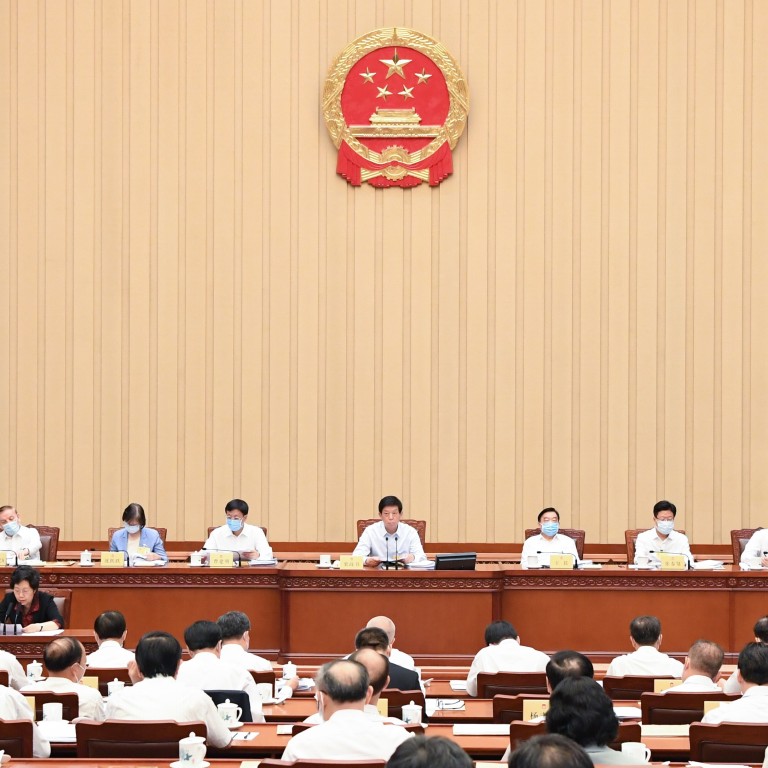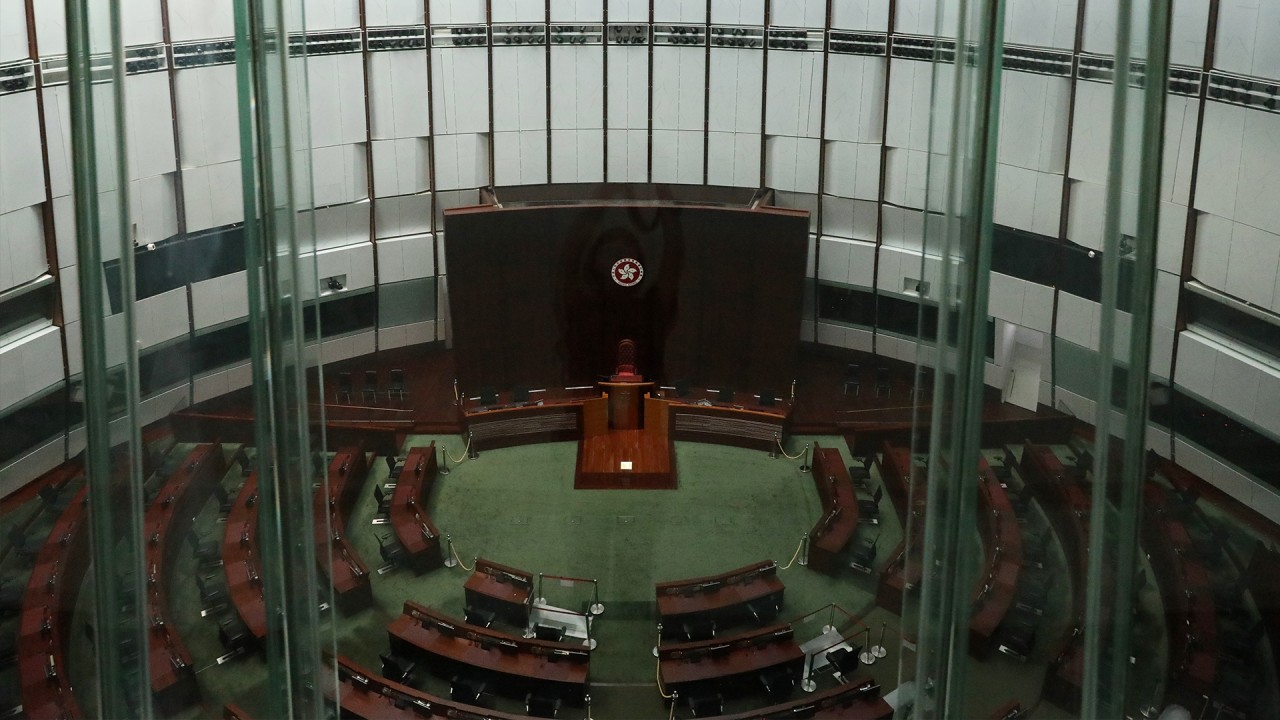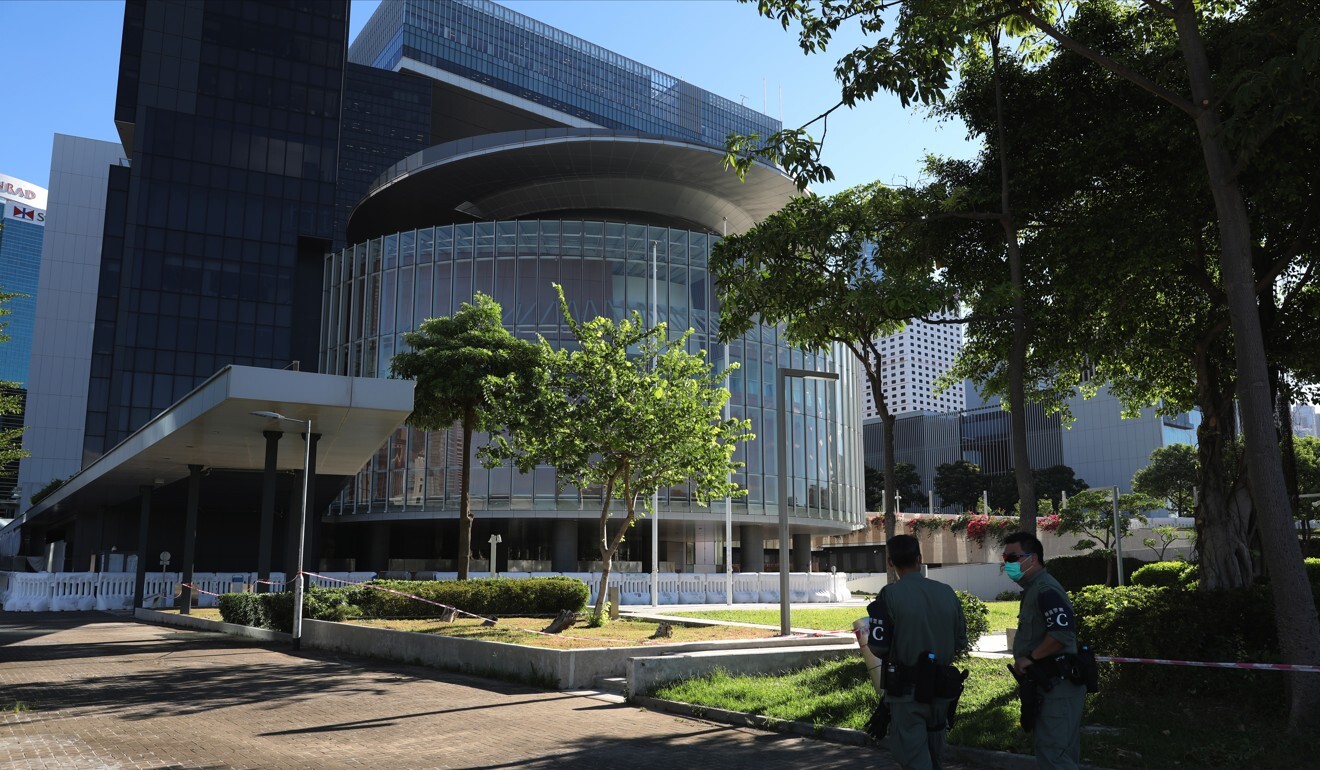
How Beijing extending Hong Kong’s Legislative Council term sparked challenges for city’s two political camps
- Source says option for a provisional term following polls postponement is ‘simplest and least controversial way’ to let city focus on battling pandemic
- Opposition unsure on boycott, while pro-establishment bloc caught off guard with four disqualified rival lawmakers set to stay on
The central government chose the option because it was the “simplest and least controversial way” to let the city focus on battling the coronavirus pandemic, according to a mainland source familiar with the city’s affairs.
The insiders’ explanation of the central government’s lenient approach came as opposition lawmakers revealed they remained undecided on whether to serve the extended year.
Activists had earlier called for the pan-democrats to resign en masse if Beijing decided to establish a provisional legislature of appointed members, or banned the four lawmakers from the chamber in the coming year.
There are different views even within major parties in the pan-democratic camp
But now with China’s top legislative body, the National People’s Congress Standing Committee (NPCSC), avoiding controversy, opposition politicians have found themselves in a dilemma.
If they choose to serve their extended term, they could risk the camp’s internal unity and also have to explain their stance that Beijing had contravened the Basic Law, the city’s mini-constitution, which only allows four years for a Legco term.
A pan-democratic lawmaker, who declined to be named, said it was unlikely the camp would reach a decision this week. “There are different views even within major parties in the pan-democratic camp. We need time to listen to different opinions before deciding whether to stay in the chamber in the coming year,” he said.

01:25
China’s top legislative body extends Legco by ‘not less than one year’
The NPCSC endorsed a resolution on Tuesday to extend the current Legco term by at least one year to plug the gap created by the polls postponement.
In a front-page commentary on Wednesday, the Communist Party mouthpiece People’s Daily hailed it as “an important decision that is constitutional, legal and reasonable”.
The mainland source explained that the decision was to help the Hong Kong government fight the pandemic and not be distracted by elections.
Decision to let banned lawmakers finish Legco term seen as bid to mollify US
“Any distraction from this key objective would unnecessarily complicate the issue,” he said.
He added the central government had considered different options, including the contentious idea of establishing a provisional legislature, and banning some legislators from meetings.
In 1996, Beijing formed a provisional legislature to circumvent Legco members in the final term under the British from becoming the first lawmakers of the special administrative region with the city’s return to Chinese rule the following year.
“But allowing serving lawmakers [to continue], including the four in question, would minimise any possible political reverberations,” the source said.

Beijing did so despite overwhelming calls from the pro-establishment camp for the four to be barred from continuing as they had been disqualified, with their loyalty in doubt.
The camp was caught off guard by the decision, but those interviewed said they would press on with their own legislative agenda.
Ip Kwok-him, a member of the Executive Council – Carrie Lam Cheng Yuet-ngor’s de facto cabinet – who had previously suggested a “caretaker Legco” without the four in question – said he respected the decision.
Opposition torn between boycotting Legco and sticking around for the fight
“I don’t see it as an embarrassment now that they can stay on,” he said. Ip said in the extended term, Legco should focus on scrutinising policy proposals to improve livelihoods.

University of Hong Kong law professor Albert Chen Hung-yee, a member of the Basic Law Committee, which advises Beijing on Hong Kong’s mini-constitution, said he believed the central government did not opt for a provisional legislature because it would trigger complicated legal issues, such as how to appoint members of the chamber.
The 82-word resolution put up by Beijing did not provide any legal rationale for extending the current Legco term, which expires on September 30, nor did it explain how the move was consistent with Article 69 of the Basic Law, which states that the tenure of office for Legco shall be four years.
Legal scholar sounds caution on Beijing’s decision to extend Legco term
Eric Cheung Tat-ming, a legal scholar from HKU, lamented that the extension of the current Legco term from four to five years showed that by brushing aside the Basic Law and common law principles regarding precedence, Hong Kong’s problems had been dealt with by a legal system with Chinese characteristics.
But he said Beijing had also “acted smartly” on the fate of the four lawmakers.

“From the perspective of an ordinary person, it seems to be a skilful strategy … It didn’t go to the extreme of setting up a provisional legislature and appointing all pro-establishment lawmakers,” he said.
“Extending the term by a year could also make the pan-democrats unsure about whether to stay, and they may fight among themselves.”
The NPCSC’s decision came two weeks after Hong Kong leader Carrie Lam asked Beijing to determine how the postponement of the Legco polls could be resolved, given Article 69 of the Basic Law specifies a four-year term limit.
It will now be up to the city’s government to decide whether the four – Alvin Yeung Ngok-kiu, Kwok Ka-ki and Dennis Kwok of Civic Party, and the accountancy sector’s Kenneth Leung – can continue in their roles without any conditions, or if they will be required to meet certain obligations.
Additional reporting by Kanis Leung

